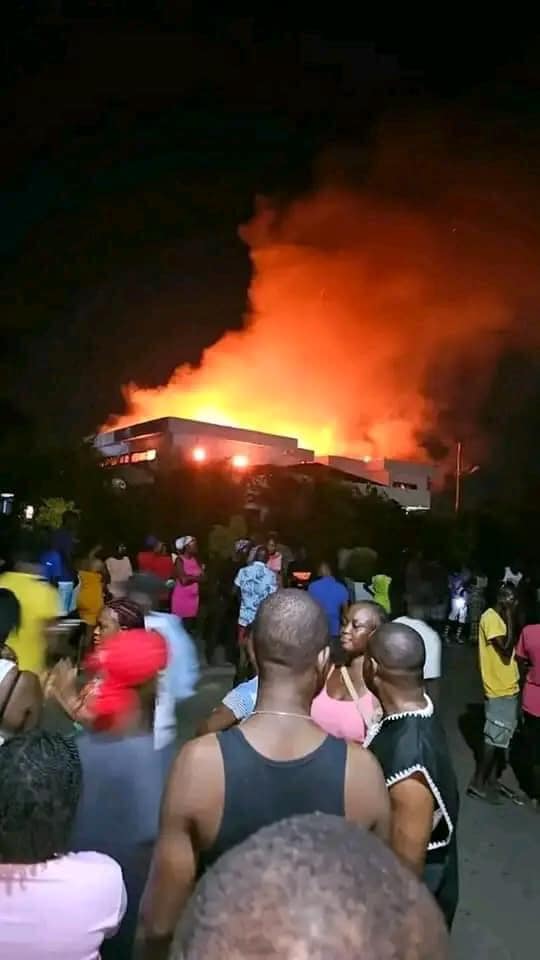By Austin S. Fallah: A Concerned Son of the Soil
Recently, an alarming surge of fire incidents has swept across Liberia, prompting both local and international stakeholders to question the root cause of this worrisome development.
Despite numerous conjectures ranging from lousy home wiring systems and unreliable power supply from the Liberia Electricity Corporation (LEC) and the Ivory Coast power to internal sabotage by miscreants, and the use of low-grade home electric wires, no definitive conclusion has been arrived at yet.

The Author, Austin S. Fallah
First, let us examine each of these possibilities in more detail to discern which, if any, holds water in this fiery predicament.
(a) Substandard Home Wiring Systems:
Many homes in Liberia still employ outdated or substandard electrical wiring, posing a significant risk of electrical fires.
Inferior wiring systems are often constructed cheaply, disregarding established safety guidelines, leading to potential shorts or overloading.
In a nation where electrification remains a major challenge, the use of such low-grade materials exacerbates the problem, increasing the risk of electrical fires.
(b) Liberia Electricity Corporation (LEC):
The Liberia Electricity Corporation (LEC), the state-run power corporation, has a dubious reputation for poor service provision, inefficiency, and infrastructural inadequacy.
These shortcomings could invariably contribute to the recent upsurge in fire incidents.
Unstable power supply, voltage fluctuations, and power outages may strain the already deficient electrical installations in homes, resulting in an increased propensity for electric fire outbreaks.
(c) Ivory Coast Power Supply:
Although Liberia benefits from an additional power supply from the Ivory Coast under the West African Power Pool program, adverse issues may arise from this arrangement’s technical complexities.
As two different countries, the compatibility of their power systems is not guaranteed.
Sustainable electricity supply is contingent on the synchronization of the two power infrastructures, and any hiccups could potentially lead to electrical fires.
(d) Internal Sabotage by Miscreants:
A less technical but equally ominous possibility is that deliberate, malicious acts could be responsible for these fire outbreaks.
In an era beset with numerous socio-political upheavals, acts of vandalism cannot be entirely discounted.
Such actions, motivated by personal vendettas, political vendettas, or just plain old mischief, could very well be the genesis of these fires.
e.Use of Low-Grade Home Electric Wires:
Finally, the use of low-grade electric wires in home installations can’t be overlooked as a possible catalyst for fire incidents.
The persistent proliferation of counterfeit electrical materials in local markets is a weak link in the chain of fire prevention.
When these inferior products are used in house wiring, they inevitably create a dangerous setup that could easily ignite a fire.
Each of these conjectures looks credible to a certain degree as a potential cause of the recent fire tsunami in Liberia.
Yet, to pinpoint the exact origin of this calamity or attribute it to one particular factor would be premature without a thorough scientific investigation.
What is desperately needed now is a comprehensive, multi-disciplinary probe into this matter and swift action by the Liberian government.
This situation is also a wake-up call for other developing countries, particularly Liberia’s neighborhoods, emphasizing the importance of prioritizing comprehensive electrical safety measures and strategies to prevent such disasters from recurring in the future.

